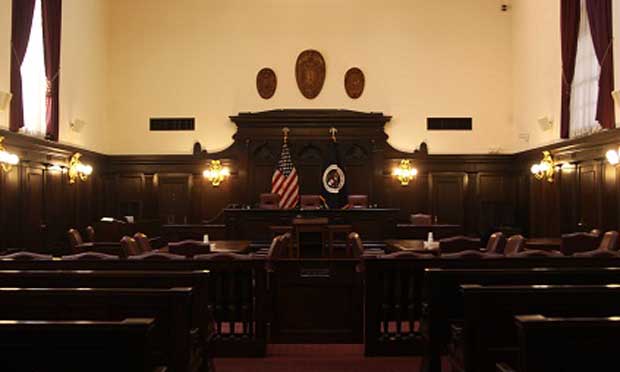
Under the current system of justice in the United States, people charged with crimes who cannot afford to hire an attorney are provided one by the government. While this has long been true at the federal level, this has not always been the case at the state and local level.
In the landmark 1963 Supreme Court decision Gideon v. Wainwright, which overturned a previous high-court ruling, Justice Hugo Black wrote for the majority that persons at all levels of the court system are entitled to this right:
[Earlier] precedents, but also reason and reflection, require us to recognize that, in our adversary system of criminal justice, any person haled into court, who is too poor to hire a lawyer, cannot be assured a fair trial unless counsel is provided for him. This seems to us to be an obvious truth. Governments, both state and federal, quite properly spend vast sums of money to establish machinery to try defendants accused of crime. Lawyers to prosecute are everywhere deemed essential to protect the public’s interest in an orderly society. Similarly, there are few defendants charged with crime, few indeed, who fail to hire the best lawyers they can get to prepare and present their defenses.
At the state and county levels, indigent defendants are either represented by a public defender — an attorney who is on the public payroll — or an “assigned counsel,” a licensed attorney contracted by justice system administrators to represent clients. The effective operation of this system across the country is the key to producing fair and just outcomes, but the reality is that resources are often scarce, caseloads huge and attorneys have varying degrees of competence. A 2007 study published in the University of Chicago Law Review found that attorney ability can make a significant difference for defendants. “Drawing a good attorney in the random assignment process can save a defendant several months of incarceration, on average,” write authors David S. Abrams and Albert H. Yoon. Other research published in the Yale Law Journal confirms these unequal attorney outcomes for serious cases such as murder, while some academic work has raised the issue of whether unequal treatment because of attorney assignment may constitute a civil rights violation.
A 2014 paper in the American Law and Economics Review, “Indigent Defense Counsel, Attorney Quality and Defendant Outcomes,” provides some of the most definitive evidence yet that such unequal dynamics are embedded in the legal system’s process of representation. The study analyzes Bureau of Justice Statistics data on felony cases in large urban counties over the period 1990 to 2004. The author, Michael A. Roach of Middle Tennessee State University, compares outcomes for public defenders and assigned counsels, controlling for potentially confounding variables and randomizing the sample analyzed.
Roach notes that in many counties across the country the “set of eligible attorneys is most often determined by way of an application and approval process, where individual attorneys submit applications to be eligible for this work and, once approved by the appropriate committee, are made eligible for specific types of cases based on their experience.” This pool of labor is likely affected by the options attorneys have available for higher-paid work in the local economy: “Unlike public defenders, assigned counsel are usually paid on a case-by-case basis, and handling indigent matters is not their full-time occupation.” To assess this dynamic, Roach also conducts an empirical case study of one Ohio county to see how local economic conditions might incentivize or disincentivize quality attorneys from serving as assigned counsel.
The study’s findings include:
- The national data show that “assigned counsel generate significantly less favorable outcomes for indigent defendants than public defenders.”
- This dynamic holds for a “variety of specifications and outcome measures, including likelihood of being convicted of the most serious charged offense, sentence length, and speed with which cases are resolved.”
- Across the national dataset, 47% of cases for which there is a guilty or not-guilty verdict were handled by public defenders, while 12% were handled by assigned counsel.
- Based on the Ohio case study, it appears that “changes in the outside labor market options of attorneys of different quality levels significantly affect the outcome gap.” There is “evidence that changes in outside options affect the overall quality of the assigned counsel panel in a way consistent with these selection incentives.”
“This selection effect is certainly important from a policy perspective,” Roach concludes. “The committees involved in approving candidates for this kind of work could benefit from simply being aware of these connections between outside labor market fluctuations and assigned counsel panel quality and outcomes, understanding that certain circumstances might lead to an increase in low quality applicants for this type of work.”
Related research: A 2010 study in the Journal of Criminal Justice speaks to the general quality of public defenders and finds that they can be as effective as privately retained lawyers in terms of producing outcomes for defendants.
Keywords: law, civil rights, crime, poverty
